Ever wondered, “What is Network Stack in BIOS?”
Today, I’ll be breaking down all you need to know about network stack functionality in your BIOS, as well as providing some disambiguation from another network stack term in the realm of computing that actually means something else entirely.
This one is gonna be pretty short and to-the-point, so let’s go ahead and dive right in!
TABLE OF CONTENTS
What is Network Stack in BIOS? All You Need To Know
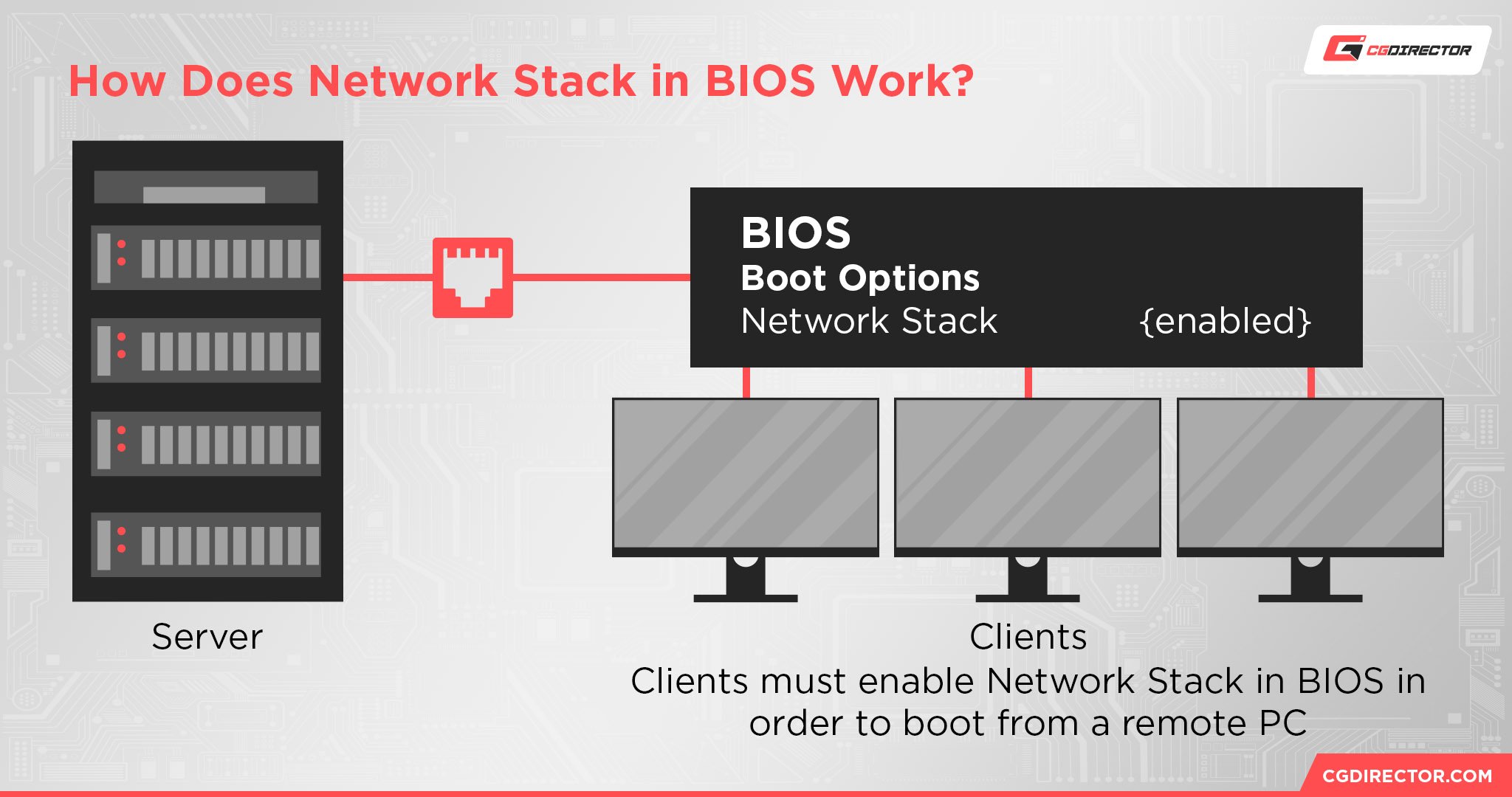
Network Stack in BIOS refers to an option that allows your PC to boot from an operating system stored on another PC or network drive rather than a locally-installed operating system.
It may also be called “Network Boot” or “Boot Over LAN”, depending on your specific BIOS and motherboard manufacturer’s preferences.
This functionality is definitely not a mainstream consumer thing. There’s really no reason for a mainstream consumer to use it, especially not if they’re using a PC that already has drives installed and could easily run its own local operating system.
Enabling Network Stack in BIOS really only makes sense in educational and enterprise environments, where “thin clients” (low-power cloud computing devices) and similar are far more common.
Plus, provided the network is properly secured, Network Stack in BIOS also allows for a unique, customized OS to be provided to the end user, whether it’s a modified version of Windows or a preferred Linux distribution.
FAQ
What is TCP/IP stack? (Also called Network Stack, or Networking Stack)
Outside of your BIOS, you may also run into another kind of “Network Stack”, or “Networking Stack”. This refers primarily to TCP/IP stack, and refers to the protocols being used to allow for networking and Internet access.
For more on this version of Network Stack, consider checking out the ScienceDirect article on the topic, if you want the nitty-gritty details.
Should I enable network stack?
If you’re a regular old consumer, probably not unless you’re particularly determined to use a PC that doesn’t have its own storage drive or…something.
Network booting is a pretty specific workload and there’s no reason to go through the hassle of setting it up if you don’t need it for any particular reason.
If you’re, say, an IT professional trying to set up a network of thin client PCs or just want tighter control of the OS in an Enterprise or Educational environment, enabling network stack does make sense.
I recommend MiniTool’s Guide on the topic if you’re one of the few who need to do this, but I anticipate that most people coming to this article aren’t doing so because they actually need this functionality.
Over to You
And that’s all, for now!
I hope this article helped clarify the purpose of Network Stack in BIOS and helped you determine whether or not it’s needed for setting up your ideal network.
Chances are high that most of you won’t have any need for this, but IT professionals and other Enterprise/Education users could definitely get some mileage out of enabling Network Stack functionality.
Have any other questions about BIOS options or PC hardware? Feel free to comment them off below, where myself or another Team member will help you ASAP. Alternatively, try out the Forum, where you can pretty much talk about whatever with the rest of our community of Enthusiasts and Experts.
Until then or until next time, though, happy computing! And remember: outside of the BIOS, “network stack” means something entirely different.
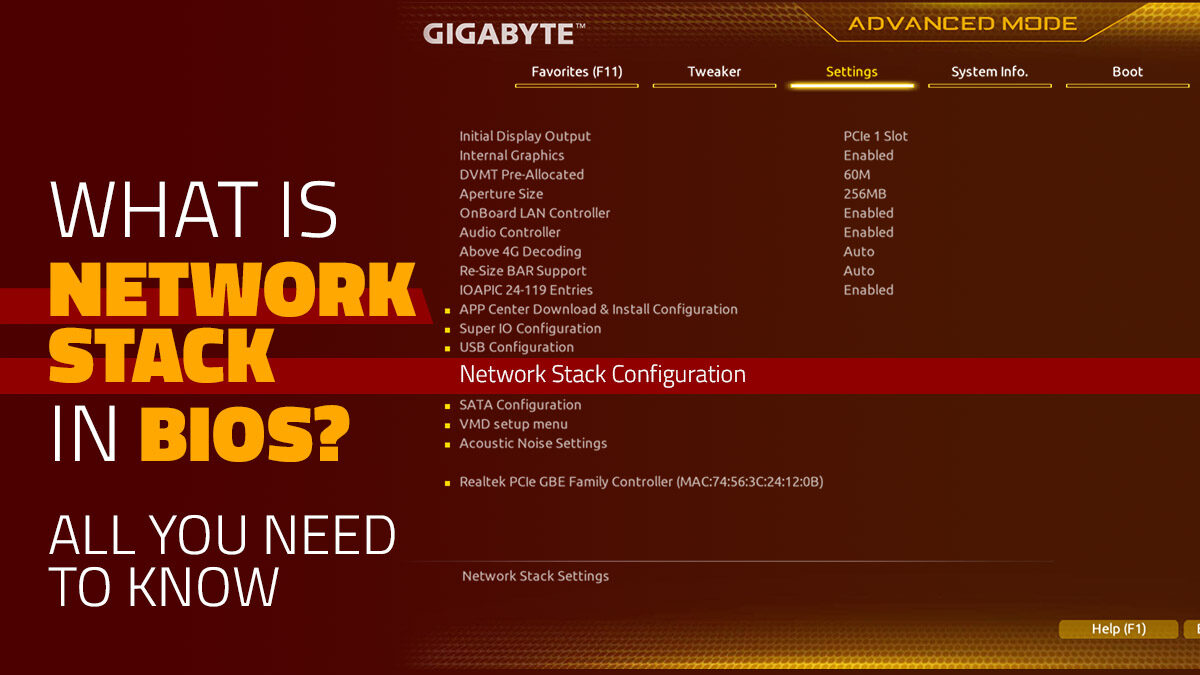
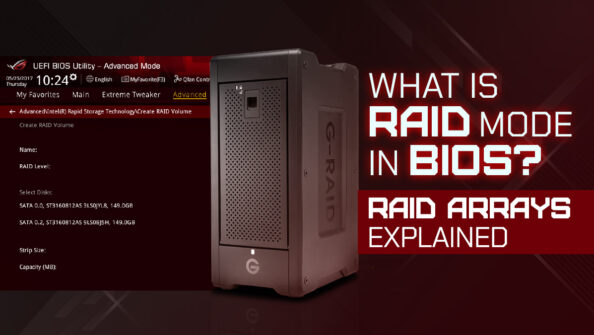
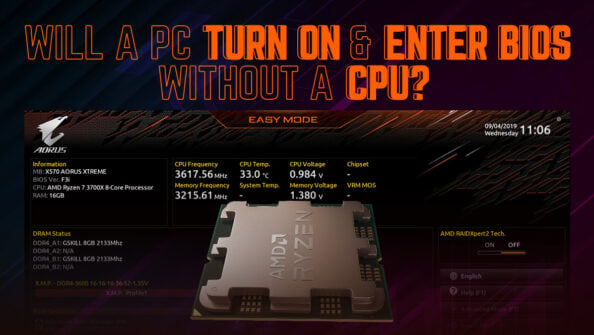
![Should You Update Your BIOS? [3 Reasons Why] Should You Update Your BIOS? [3 Reasons Why]](https://www.cgdirector.com/wp-content/uploads/media/2023/08/Should-You-Update-Your-BIOS-3-Reasons-Why-Twitter-594x335.jpg)
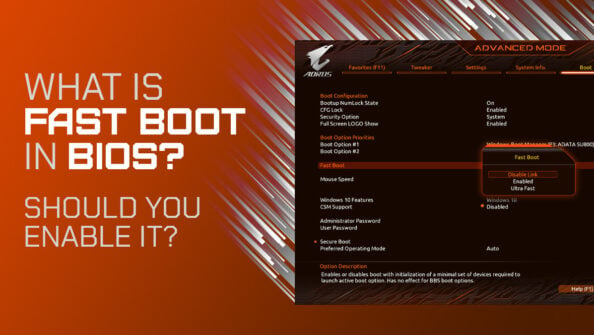

0 Comments